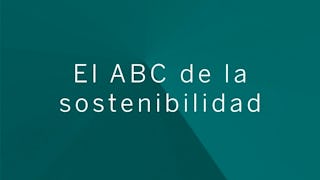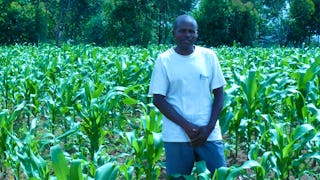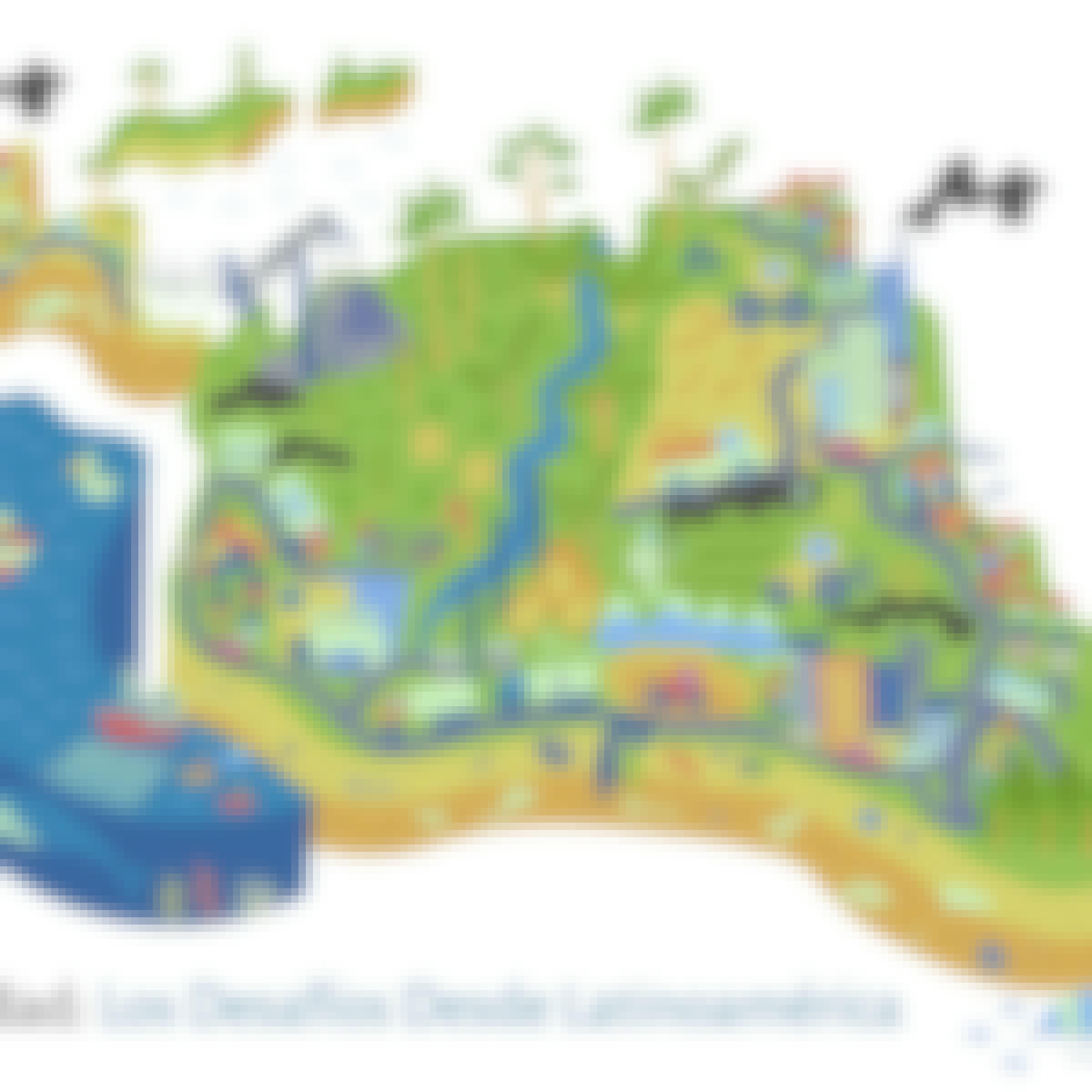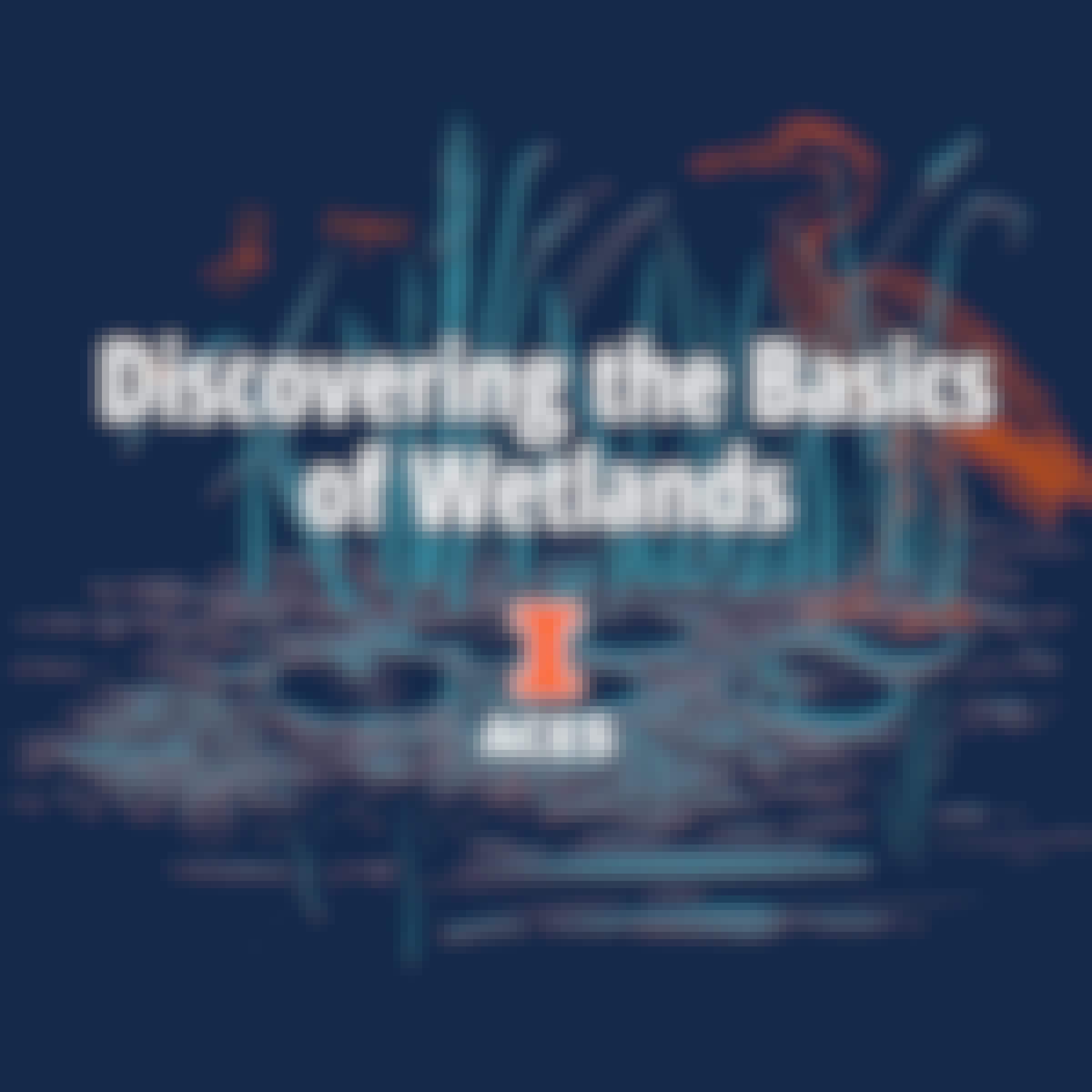Filter by
SubjectRequired
LanguageRequired
The language used throughout the course, in both instruction and assessments.
Learning ProductRequired
LevelRequired
DurationRequired
SkillsRequired
SubtitlesRequired
EducatorRequired
Explore the Conservation Course Catalog
 Status: NewStatus: Free Trial
Status: NewStatus: Free TrialUniversity of Illinois Urbana-Champaign
Skills you'll gain: Community Outreach, Water Resources, Cultural Diversity, Land Management, Policy Analysis, Social Sciences, Cultural Sensitivity, Environment and Resource Management, Environmental Laws, Environmental Engineering, Natural Resource Management, Environmental Issue, Environmental Policy, Environment, Environmental Engineering and Restoration, Environmental Regulations, Environmental Science, Civil Engineering, Environmental Monitoring, Governance
 Status: Free Trial
Status: Free TrialUniversity of Michigan
Skills you'll gain: Demography, Environmental Regulations, Environment Health And Safety, Social Justice, Systems Thinking, Environmental Policy, Environmental Issue, Public Health, Health Equity, Environment, Health Disparities, Health Systems, Health Policy, Environmental Science, Pollution Prevention, Risk Management, Sanitation, Energy and Utilities, Mitigation, Occupational Safety and Health Administration (OSHA)

Campus BBVA
Skills you'll gain: Sustainability Reporting, Corporate Sustainability, Environment, Environmental Resource Management, Environmental Social And Corporate Governance (ESG), Natural Resource Management, Social Justice, Stakeholder Engagement, Economic Development, Performance Measurement, International Relations, Diversity and Inclusion
 Status: Free Trial
Status: Free TrialRice University
Skills you'll gain: Basic Electrical Systems, Electrical Engineering, Physics, Mechanics, Electrical Systems, Calculus, Mathematical Modeling, Trigonometry, Applied Mathematics
 Status: NewStatus: Free Trial
Status: NewStatus: Free TrialDuke University
Skills you'll gain: Environmental Social And Corporate Governance (ESG), Corporate Sustainability, Business Ethics, Governance, Advocacy, Business Priorities, Organizational Strategy, Environmental Resource Management, Corporate Strategy, Environmental Issue, Stakeholder Engagement, Diversity and Inclusion

University of Western Australia
Skills you'll gain: Land Management, Economics, Water Resources, Business Economics, Natural Resource Management, Environmental Resource Management, Environmental Policy, Supply And Demand, Cost Benefit Analysis, Policy Analysis, Market Dynamics, Production Process

Erasmus University Rotterdam
Skills you'll gain: Natural Resource Management, Business Modeling, Corporate Sustainability, Environment and Resource Management, Environmental Social And Corporate Governance (ESG), Complex Problem Solving, Stakeholder Management, Cost Benefit Analysis, Strategic Partnership, Innovation
 Status: Free Trial
Status: Free TrialRice University
Skills you'll gain: Mechanics, Physics, Engineering Calculations, Mathematical Modeling, Algebra, Physical Science, Calculus, Applied Mathematics, Trigonometry
 Status: Free Trial
Status: Free TrialRice University
Skills you'll gain: Mechanics, Physics, Structural Analysis, Mechanical Engineering, Calculus, Engineering Calculations, Engineering Analysis, Physical Science, Mathematical Modeling, Trigonometry

Pontificia Universidad Católica de Chile
Skills you'll gain: Environment, Socioeconomics, Environmental Issue, Social Justice, Environmental Resource Management, Natural Resource Management, Systems Thinking, Social Sciences, Biology, Community Development, Cultural Diversity
 Status: Free Trial
Status: Free TrialL&T EduTech
Skills you'll gain: Waste Minimization, Environmental Engineering, Environment and Resource Management, Energy and Utilities, Building Codes, HVAC, Environmental Regulations, Water Resources, Construction, Architectural Engineering, Building Design, Construction Management
 Status: Free Trial
Status: Free TrialUniversity of Illinois Urbana-Champaign
Skills you'll gain: Water Resources, Environmental Science, Biology, Natural Resource Management, Environment, Environmental Engineering, Land Management, Microbiology, Geographic Information Systems, Chemistry
In summary, here are 10 of our most popular conservation courses
- People, Policy & Wetlands: Social Dimensions of Conservation: University of Illinois Urbana-Champaign
- Impacts of the Environment on Global Public Health: University of Michigan
- El ABC de la sostenibilidad : Campus BBVA
- Physics 102 - Electric Charges and Fields: Rice University
- ESG Value Creation for Business Impact: Duke University
- Agriculture, Economics and Nature: University of Western Australia
- A Business Approach to Sustainable Landscape Restoration: Erasmus University Rotterdam
- Physics 101 - Forces and Kinematics : Rice University
- Physics 101 - Energy and Momentum: Rice University
- Sustentabilidad: los desafíos desde Latinoamérica: Pontificia Universidad Católica de Chile










